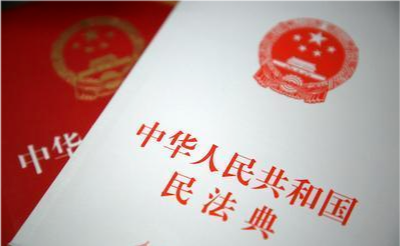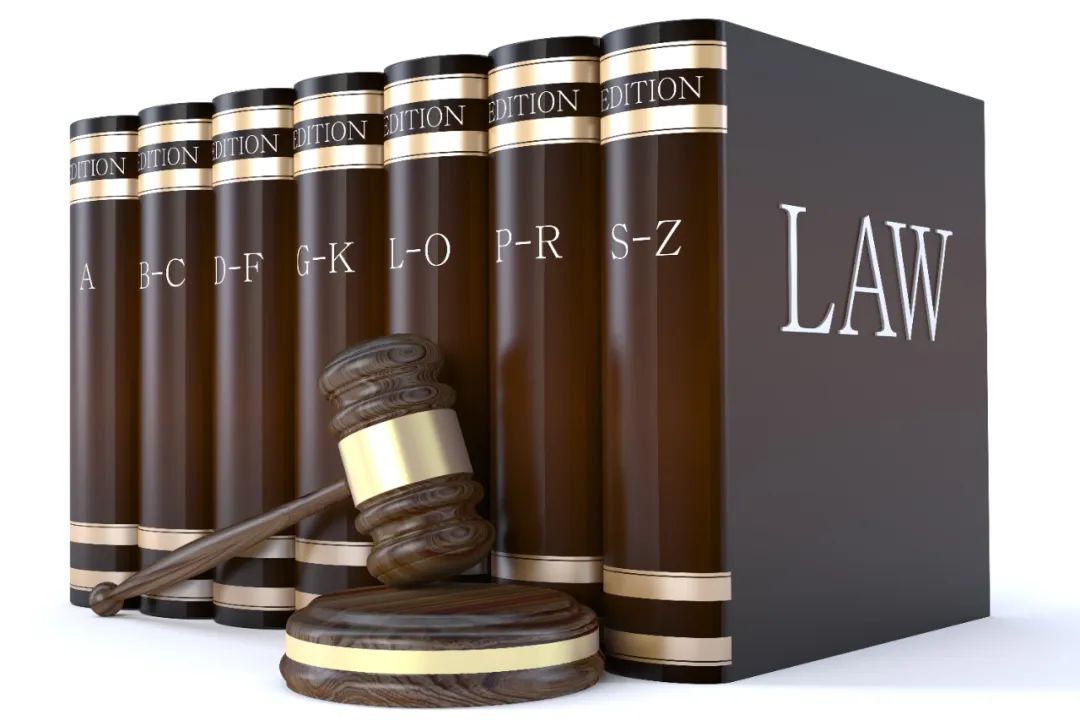
On November 14, 2019, the Supreme Court released the "Minutes of the National Judges' Completion Trial Work Conference" (referred to as the Jiumin Meeting minutes), the minimum of Article 47 stipulates: "When the conventions are released, the conditions are disclosed, With this, the CSO is a result of the removal of the contract, and the people's judge should review whether the default of the breach of contract is significantly slight, it affects the implementation of the approach to the contractor contract, according to the principle of honesty, determining whether the contract should be released. Default default significantly slightly, it does not affect the implementation of the contractor contract, the approval party requests to cancel the contract, the people's judges do not support; on the contrary, it will be supported according to law. "[1] Due to the" People's Republic of China Code "and before" The Regulations on Contract Law on Contracts is not substantially different. At present, the 47th of the Jiuxian Meeting may continue to apply.

Honesty and Credit Principles vs Contract Free Principles. Article 7 of the People's Republic of China stipulates the principle of honesty and credit: "The civil society is engaged in civil activities, and should follow the principle of integrity, adhering to the honesty, adhered to the commitment." But Article 5 of the Act also stipulates the freedom of contract: " The main body is engaged in civil activities, and the voluntary principle should be followed, change, and end the civil legal relationship. "[2] But according to the minulation of the Ministry of Jiuxian, according to the provisions of the parties, the contract party is based on the consequences of the parties, voluntarily to the contract if the relief is clear, there is no situation in which it is invalid, canceled, can be changed, and the judge can adjust the terms of the contract parties to clearly agree on the terms of the contract parties according to the principles of honesty, whether there is the will of the parties of the contract. Violation of freedom of contract?
In the US contract law, goodfaith is also a basic obligation of the parties of the contract, so how is the integrity of integrity? What are the differences in the application of honesty and credit? How do judges deal with relations between integrity and clear contract terms? Below, this paper will briefly summarize the provisions on integrity obligations in the US contract law. By introducing the problem of US judges in the applicable application of integrity, combined with the "People's Republic of China Code", there are questions in the Jiumin Conference minutes and suggestions.
I. The US Contract Law on Integrity Obligations

In the United States, the law of the relevant contract is mainly from two aspects. First, the common law is mainly the judgment law formed by the judge in the trial; the other is a uniform CADE (UCC) that is enjoys effective by the country. However, the unified commercial law is mainly suitable for goods trading contracts. 1 The integrity of the integrity in the common law is the legal rule (Rule) formed in a case trial, which is scattered in various specific cases. The secondary rear of the contract method (SECOND), although professor of the American Law Institute, the legal work written by experts, is a secondary Authority, but its summary about the principles of the main general law in the US contract law have high recognition. Here, in order to facilitate the introduction, the provisions of the integrity obligation will be directly referenced in the secondary revision of the contract. Secondary Review of the Contract Law Provisions 205:“Every contract imposes upon each party a duty of goodfaith and fair dealing in its performance and its enforcement.”[3]That is to say, each contract parties have an honesty and fair transaction in the contractual performance and implementation. But this obligation is how to understand, which gives further explanation in its comments (Comment a),“Good faith performance or enforcement of a contract emphasizes faithfulness to an agreed common purpose and consistency with the justified expectations of the other party” “A complete catalogue of types of bad faith is impossible, but the following types are among those which have been recognized in judicial decisions: evasion of the spirit of the bargain, lack of diligence and slacking off, willful rendering of imperfect performance, abuse of a power to specify terms, and interference with or failure to cooperate in the other party's performance.”[4]The integrity obligations in the contractual performance and implementation process are mainly emphasized that loyalty is the common purpose of both parties and is in line with the reasonable expectations of the other party. The secondary re-report of the contract law did not give the specific definition of integrity obligations, but it enumerated the unhealthy letter behavior (Bad Faith) confirmed in the jurisprudence to help understand the meaning of integrity. Although it is not possible to give a complete dishonest, the following acts have been identified as untrustworthy behavior: avoiding the behavior of bargaining spirit, lacks should pay attention or existence of slack behavior, deliberately providing a defect performance, the rights of behavior, abuse of the provisions, interference or do not cooperate with each other's performance.

2.The integrity of the Commercial Code (UCC) has been developed by the United States and the United States Law Committee and the US Law Society. At present, in addition to polar individual states, it has been adopted by the vast majority of the United States, and has become the formulation of states. In the UCC General Definition section, the integrity is defined as:“"Good faith," ……means honesty in fact and the observance of reasonable commercial standards of fair dealing.”[5]That is, in fact, honest and compliance with fair trade of reasonable business standards. Clearly defined in UCC§ 1-302(b)“The obligations of good faith…… prescribed by [the Uniform Commercial Code]may not be disclaimed by agreement. The parties, by agreement, may determine the standards by which the performance of those obligations is to be measured if those standards are not manifestly unreasonable.”[6]Contract Parties cannot eliminate the application of integrity obligations through agreements, but can determine the standards that measure the implementation of honesty and credit obligations, but this agreed standard cannot be obviously unreasonable.
II, The US Judge Exists When Applicable to Honest Obligations

Although the secondary re-telling of the contract law summarizes the integrity of ordinary law, UCC also gives a clear definition of integrity, but because of the uncertainty of the integrity, it applies far more than the imagination, in the United States, judges during the application of integrity, there have been many differences, resulting in great uncertainty of the referee.
1. Relationship between Integrity Obligations and Clear Contract Terms
In the judgment, there are two different opinions:
1).The clear contract terms eliminates the application of integrity obligations in the case of Martin V.hamilton State Bank,Judge thinks:“Firms that have negotiated contracts are entitled to enforce them to the letter, even to the great discomfort of their trading partners, without being mulcted for lack of good faith.”[7]After consultation, companies have the right to strictly implement the contract, even if it will bring huge disappointment, inconvenience, or not, it is punished due to lack of integrity obligations. In the AUTOMATICSPRINKLER CORP. OF America V. Anderson, the judge considers:“"[t]here can be no breach of an implied covenant of good faith where a party to a contract has done what the provisions of the contract expressly give him the right to do.”[8]When the contract party is clearly appointed in accordance with the contract terms, it will not violate the honest obligation of the implicit. This view believes that if the parties have clearly agreed to the relevant matters, the clear contractual agreement excludes the application of integrity obligations, if strictly in accordance with the clear agreement, at this time, it is not possible to collect integrity and consider the applicable integrity. The premise must be a convention that has violated a clear clause.

2).Integrity obligations can only be applied to Amocooil Co. V. Burns when the contract terms are not agreed or the contractual terms are given to the parties. Judge considers that: “the duty of good faith and commercial reasonableness is used to define the franchisor's power to terminate the franchise only when it is not explicitly described in the parties' written agreements.”[9]Integrity obligations and business rationality is only used to define the right to terminate the franchise by the written agreement of the contract parties. In the case of PublixSuper Markets v. Wilder Corp,Judge considers that::“[Goodfaith] is usually raised when a question is not resolved by the terms of the contract or when one party has the power to make a discretionary decision without defined standards.”[10]When a problem cannot be solved by the contract terms or when a party needs to make a discretion decision when there is no clear standard, it can be proposed. In the case of A.W.Fiur Co.v. Ataka & Co.,Judge considers that:“Although the contract conferred upon the ‘absolute and exclusive right to reject any orders for any reason whatsoever’, such a contract does not import the right arbitrarily to refuse to accept orders.”[11]Although the contract gives the parties to reject any orders for any case, the contract does not mean that the parties have the right to decline the order. This view considers that when the contract parties are given complete free discretion, such as the contract contains unilateral free discretion(at its sole discretion)Or unilateral no reason to relieve(termination for any reason or no reason)articles,It is necessary to restrict the discretion of the parties through applicable integrity obligations, so that the exercise of the parties is in line with the purpose of the contract and the reasonable expectations of the other party.

2.Whether the behavior of violations of integrity must have subjective intentions in the judgment, there are two main opinions:
1).The behavior of violations of integrity must have subjective malicious motives
In the case of BrunswickHills Racquet Club, Inc. v. Route 18 Shopping Center,Judge considers that:“Proof of ‘bad motive or intention’ is vital to an action for breach of the covenant.” “The party claiming a breach of the covenant of good faith and fair dealing ‘must provide evidence sufficient to support a conclusion that the party alleged to have acted in bad faith has engaged in some conduct that denied the benefit of the bargain originally intended by the parties.’”[12]The motivation or intention of the prove is crucial for a lawsuit against the integrity obligation, advocating the parties who violate the honesty and fair transactions must provide sufficient evidence to support such conclusions, that is, the parties that are accused of untrusting behavior have been engaged in some behaviors, and these behaviors denied the interests of the parties originally whatever. This view believes that violations must have subjective poac motives or intentions.
2).Violation of integrity obligations does not need subjective motivation
In the case of CarmaDevelopers (Cal.), Inc. v. Marathon Dev. Cal., Inc.,Judge considers that:“the covenant of good faith can be breached for objectively unreasonable conduct, regardless of the actor's motive.”[13]The objective unreasonable behavior may also violate the integrity obligation, regardless of the subjective motive of the actors.
III、Enlightenment from the US integrity obligations and applications

1.Integrity obligations do not need to agree, and the parties cannot eliminate the agreement in the United States, and the integrity obligation does not require parties, whether or not the parties agree, the integrity obligations are in each contract. And the parties cannot use the agreement to exclude the application of integrity obligations, but in the case of applicable UCC, the contract parties can agree to the standards of integrity obligations through the agreement, but the standard cannot be unreasonable.
2.The application of integrity obligations has great uncertainty
In the United States, there is great disputes and uncertainty in how to apply integrity obligations, not only because of the different laws of state, because the applicability of integrity obligations may have conflicts with the principles of traditional contract law. When the parties have clear agreements, the application of integrity obligations may have some degree of conflict with the principle of freedom of contract. In accordance with the clear terms of the contract, it is still adjusted by applicable integrity obligations, and is suitable for integrity. When the obligation, does it require the subjective malicious maliciousness, is subjective standard or objective standards, which have no unified or mainstream standards in the United States, so there is a great uncertainty of the referee results, which makes the parties to effect on the contract terms. It is expected to produce great uncertainty.
3.The more specific, clear, and the integrity is more affected.
Due to the uncertainty of the integrity of the referee, it also directly affects the setting of the parties to the contract terms, so that the parties cannot make reasonable expectations for the effectiveness of the provisions of the contract. The more unfained the contract terms, the more the exercise of the rights, the larger the discretion rights, the higher the probability that the judge is in violation of the obligation of integrity. Therefore, there are experts in the drafting of the United States contract, since the UCC allows the parties to agree on the measurement of integrity obligations, the parties should set the specific contract terms as much as possible, and exercise on their rights Set condition restrictions to reduce the legal risk of such uncertainty. [14]
IV、Problems and Suggestions in Article 47 of the Jiumin Meeting Minutes

The Problems in Article 147
1.Using legal dismissal replacement
Jiumin Meeting 47 stipulates: "The default level of default is significantly slight, does not affect the implementation of the contractor contract, the approval party requests to cancel the contract, the people's judge does not support; contrary, it will be supported according to law."[15] According to this provision, only in the case of "reverse", that is, the degree of default is greater than that, the judge will support the agreement of the association.
According to this provision, when the parties have clearly agreed to cancel the conditions (such as some kind of default behavior, the other can unlike the contract), the contract can ultimately demonstrate whether the default behavior has affected the implementation of the contract. This is actually Using legal relief replaces the party's conventions. Because if there is only the implementation of the contract, the contract party can obtain the support of the court, then the parties will not necessarily have to demonstrate the conditions of the contract, and can directly apply the 563th article of the Civil Code. The statutory resolution rights: "There is one of the following circumstances, the parties can release the contract:……(4) The parties have delayed their debts or have other default behaviors to make contractual purposes. "[16]Because even if the parties have not agreed to be relieved, if one of the default behaviors leads to the failure to achieve the contract, the contract parties can still use the legal dismissal to dispense the contract.

2. The criteria is not clear
According to the provisions of 47, it is contemplated whether or not the support depends on three factors: (1) Degree of default behavior, whether the degree of default is significantly reduced;(2)Whether the contract is achieved, whether it affects the implementation of the contractual contract; (3) Honest and credit principles, determine whether the contract should be released according to the principle of honesty credit. So what is the relationship between these three factors? When the default behavior is significantly slight, it generally does not affect the implementation of the contract purpose, and there is a certain consistency between these two. However, what is the relationship between the size of the default, whether the contract is related to the principle of honesty? When the degree of default is slight, the contract is still able to realize, if the parties will release the contract in accordance with the contract, whether it does not violate the principle of honesty credit? It is also said that the parties need to be in violation of the principle of honesty, they will negate their agreements.47 seems to specify two endpoints, one end is a significant slight default, does not affect the implementation of the contract, the other end is the realization of default, and the implementation of the purpose of the contract, but the extent of default and the purpose of the contract How to apply when between the two? For example, if the parties are deflated due to third parties, the degree of default is significantly slightly, but it is not enough to affect the implementation of the contract, can the CSR can release the contract based on the agreement?

3.There is a very uncertainty
1).Whether the contract's ability is to be considered, and the reasonable expectations of the parties are equally considered. For example, the parties will agree with the full freedom of payment for more than 3 days, and the other is the right to relieve the contract. This provisions are specific, clear, and both parties have been fully or key consultations when they entered into the contract, and both parties have reasonable expectations on their legal consequences. When the conditions are released, one party with relief issues the unintention notification to the other party, but it has been proved that the expected payment is more than 3 days, and it may not affect the implementation of the contract's purpose, but if the parties do not allow the parties to cancel the contract, then How to protect the reasonably expectations of the parties when the contract is enriched, and the parties will protect the benefits of negotiation. Whether it is significantly slight, it can affect the implementation of the contract is a relatively subjective judgment, what is the situation that is slight? What level can the breach of contract can be identified as the implementation of the contract's purpose? For example, the obligation of payment, how much the default reaches a significant slight? How much amount is achieved, belongs to the implementation of the purpose of the contract? The understanding of the contract may be completely different, and the understanding of the judge may not be the same as the parties. However, according to the provisions of 47, when negotiating and engaging in the contract, it is necessary to first determine whether the default behavior agreed is significantly slight, whether it will affect the purpose of the contract, otherwise, even if both parties agree, it may be subject to court Adjustment. When there is no other affected contract or terms, if the parties are unable to determine the effectiveness of the contractual terms that have been fully negotiated, it will lead to the contract, negotiating the contract, negotiating the terms of the contract, to the contract party, it means great uncertainty.

2)Suggestions 1. Restrict the scope of application of honesty and credit principles, avoid excessive interference of the contract freedom, leading to uncertainty. 2, set specific, clarify the effectiveness of the contract relief. According to the provisions of Article 562 of the People's Republic of China Code, the parties can agree on the income of the contract. When the contract is released, the devalue can cancel the contract (the strip is not substantially different about the provisions of the contract.) For the contract, the contract will be fully negotiated, if specific, clear, the two parties are expected, once the occurrence occurs, it should be supported by the association's relief, confirm the effectiveness of both parties. By affirming the legal consequences of the Association of the Association to guide the contract, the parties will fully pay full attention to their rights, reasonably eliminate their own obligations, rather than after the contract, through honesty and credit The principle is remedied afterwards, which is not only violated by the parties to represent the contract, but also bring uncertainty to the expectations of the parties.
3)、Applicable to the principle of honesty and credit limits the complete free discretion.
If the parties in the contract only agree that the general contract relief, lack of specificity and operability, give the contract party's parties, such as the agreement, one party has the right to unilate the contract. Then, when the parties exercise the contract to relieve the right, it should be determined whether the behavior of the contract is in line with the principle of honesty and credit, whether there is abuse convention to relieve the right to relieve the contract without considering the right to deal with the other party, and according to the specific situation The judgment, and guided the parties to negotiate the parties to negotiate the terms, clear and accompany the restrictions, and increase the determinism of contractual performance and contract terms, and conduct a reasonable principle of honesty and credit principles. balance.
References:
[1] 《Minutes for the National Court of Merchants Trial Work Conference》(Fa〔2019〕254#),November 14, 2019, Article 47.
[2]《People's Republic of China Code》,Article 5,7.
[3] RESTATEMENT(SECOND) OF CONTRACTS § 205 (1981).
[4] As the same as above, comment. a..
[5] U.C.C. §1-201(b)(20) (2012).
[6] As the same as,§ 1-302(b).
[7] Martin v.Hamilton State Bank,723 S.E.2d 726 (2012).
[8] AutomaticSprinkler Corp. of America v. Anderson,57 S.E.2d 283 (1979).
[9] Amoco Oil Co.v. Burns,437 A.2d 381 (Pa. 1981).
[10] Publix SuperMarkets v. Wilder Corp. of De, 876 So. 2d 652 (Fla. Dist. Ct. App. 2004).
[11] A.W.Fiur Co.v. Ataka & Co.,71 A.D.2d 370.
[12] Brunswick HillsRacquet Club, Inc. v. Route 18 Shopping Center, 182 N.J. 210 (2005).
[13] CarmaDevelopers (Cal.), Inc. v. Marathon Dev. Cal., Inc.,826 p.2d 710 (cal.1992).
[14] Kenneth A.Adams,A Manual of Style for Contract, fourthedition, 2018, at 179-181页.
[15]《Minutes for the National Court of Merchants Trial Work Conference》(Fa〔2019〕254),November 14, 2019, Article 47.
[16] 《People's Republic of China Code》,all together, here referes to Article 563 .
“
Statement:
This article is originally created by the JAVY Law Firm, only represents the author's own point of view, and must not be considered as a formal legal advice or suggestion issued by the JAVY Law Firm or its lawyers. If you need to reprint or quote anything in this article, please indicate the source.
© Beijing JAVY Law Firm Beijing ICP Registration No. 18018264-1